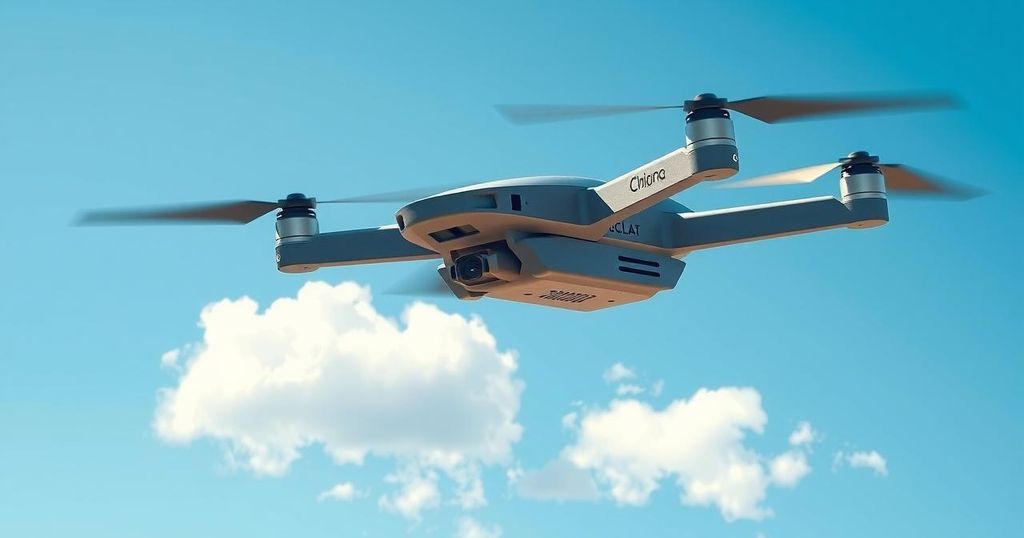Baykar and Leonardo have established a joint venture focused on the European drone market, projected at $100 billion over the next ten years. This partnership aims to merge Baykar’s drone technology with Leonardo’s electronic systems, leading to advanced drone capability development. The collaboration also anticipates potential shifts in European military procurement strategies, redirecting focus toward indigenous options in the face of changing international dynamics.
Baykar, a prominent Turkish UAV manufacturer, has finalized a joint venture with Italy’s Leonardo, aiming to capture part of Europe’s lucrative $100 billion drone market. This 50-50 collaboration will involve drone assembly both in Turkey and at Leonardo’s facilities in Italy, facilitating certification for sales in this noteworthy European market over the next decade.
Leonardo’s CEO, Roberto Cingolani, highlighted a significant gap in unmanned technologies in Europe, articulating that drones are crucial for ensuring security in these complex times. The first prototype, a variant of Baykar’s Akinci drone, is anticipated to be ready within a year, emphasizing the collaborative nature of this venture.
Baykar’s Chairman, Selçuk Bayraktar, pointed out that the Akinci has a payload capacity of 1.5 tonnes, indicating its ability to carry munitions comparable to those used by traditional fighter aircraft. Bayraktar also expressed optimism about the potential of the Kizilelma unmanned fighter fulfilling the role of a ‘Loyal Wingman’ for the Global Combat Air Programme (GCAP) fighter, currently under development.
Cingolani characterized the collaboration as an “opportunity” to explore the feasibility of integrating a Turkish drone into the GCAP framework, which is still in its initial stages. He stressed the importance of defining operational requirements before final determinations can be made regarding drone deployment.
As this joint venture progresses, potential assembly of Baykar drones in Italy could occur at Leonardo facilities, including those acquired from Piaggio Aerospace. This initiative marks the signing of a memorandum of understanding, with the complete establishment of the joint venture expected within six months.
Cingolani commended Baykar’s high-tech capabilities in drone production, noting the comprehensive facilities in Turkey, which include amenities for workers. He identified areas for synergism, such as developing UAV swarms based on geographical navigation and enabling advanced drones to accompany sixth-generation fighters.
Despite participation in the Eurodrone program, Cingolani asserted that this new collaboration will not conflict with existing projects, while cautioning that the eurodrone initiative might not position Europe competitively in the drone sector. He expressed hopes that the Italian military would consider purchasing Baykar’s products, thereby altering Italy’s procurement landscape conditioned in favor of U.S. UAVs.
Concerns regarding European export restrictions were also mentioned, with Cingolani affirming adherence to regulatory guidelines- paramount in maintaining the viability of the new joint venture. Furthermore, shifting political dynamics in the U.S. have prompted Europe to reevaluate its defense procurement strategies, initiating a potential pivot away from dependency on American military hardware.
The anticipated increase in European defense spending, driven by emerging geopolitical concerns, becomes essential to ensure indigenous capabilities amidst the evolving global military landscape. Elisabeth Gosselin-Malo contributed to this report. Tom Kington is the Italy correspondent for Defense News.
In summary, the joint venture between Baykar and Leonardo signifies a strategic partnership aimed at enhancing Europe’s stance in the drone market. With the joint undertaking looking to innovate drone manufacturing, integrate advanced technologies, and facilitate military procurement, it reflects a proactive response to both regional security challenges and the necessity for autonomous capabilities within Europe’s defense framework. The implications of this partnership may usher in a new era of defense independence for European nations amidst shifting geopolitical dynamics.
Original Source: www.defensenews.com






